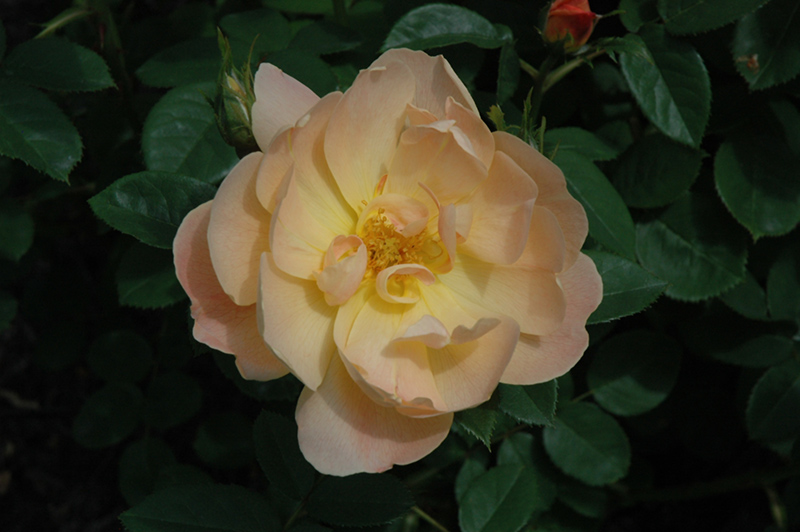Height: 5 feet
Spread: 4 feet
Sunlight:
![]()
Hardiness Zone: 5b
Other Names: English Rose
Group/Class: Austin Rose
Description:
A lovely variety producing clusters of semi-double apricot-yellow blooms with a light tea to myrrh scent; needs full sun and well-drained soil; vigorous and healthy with an airy, tall growth habit
Ornamental Features
The Lark Ascending Rose features showy clusters of lightly-scented semi-double peach flowers with gold eyes and yellow centers at the ends of the branches from late spring to early fall, which emerge from distinctive red flower buds. The flowers are excellent for cutting. It has dark green deciduous foliage. The serrated oval compound leaves do not develop any appreciable fall color.
Landscape Attributes
The Lark Ascending Rose is a multi-stemmed deciduous shrub with an upright spreading habit of growth. Its average texture blends into the landscape, but can be balanced by one or two finer or coarser trees or shrubs for an effective composition.
This is a high maintenance shrub that will require regular care and upkeep, and is best pruned in late winter once the threat of extreme cold has passed. Gardeners should be aware of the following characteristic(s) that may warrant special consideration;
- Disease
- Spiny
The Lark Ascending Rose is recommended for the following landscape applications;
- Mass Planting
- Hedges/Screening
- General Garden Use
Planting & Growing
The Lark Ascending Rose will grow to be about 5 feet tall at maturity, with a spread of 4 feet. It tends to fill out right to the ground and therefore doesn't necessarily require facer plants in front, and is suitable for planting under power lines. It grows at a fast rate, and under ideal conditions can be expected to live for approximately 20 years.
This shrub should only be grown in full sunlight. It does best in average to evenly moist conditions, but will not tolerate standing water. It is not particular as to soil type or pH. It is highly tolerant of urban pollution and will even thrive in inner city environments. This particular variety is an interspecific hybrid.

